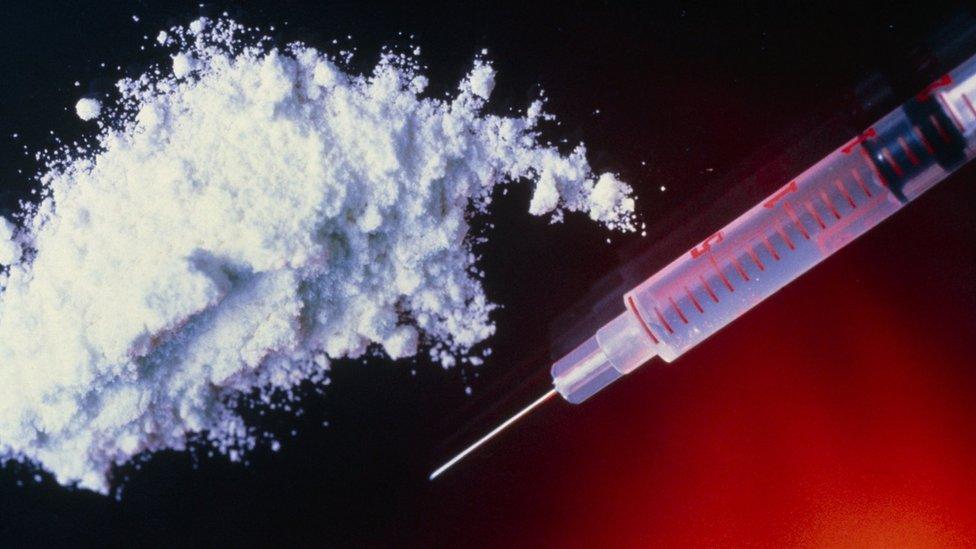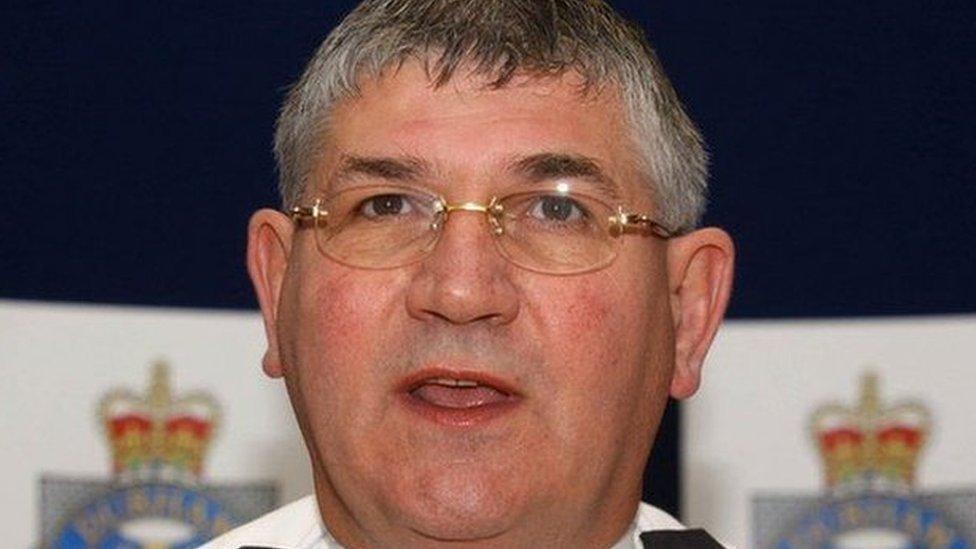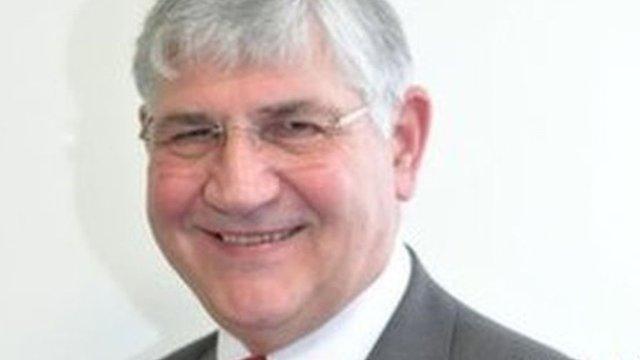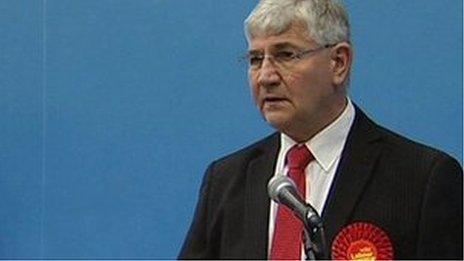Durham Police to give drug addicts heroin in bid to cut crime
- Published

Under the scheme, heroin will be provided in medically supervised conditions
Heroin addicts are to be given the Class A drug in supervised "shooting galleries" as police bid to tackle drug-related crime.
Durham Police is to become the first force in the country to introduce a scheme in which users are treated with diamorphine - medical grade heroin.
Ron Hogg, County Durham's Police, Crime and Victims' Commissioner, says such treatment lowers offending levels.
Opponents claim trials have not shown significant benefits.
Mr Hogg told BBC Newcastle existing national policies had not been effective and pointed to six-year trials in Darlington, London and Brighton which he said had helped wean users off the drug.
Addicts were given the opiate in consumption rooms, often referred to as "shooting galleries", supervised by medical professionals.
"It got them back into a normal life and it cut crime," he said.
"We saw health benefits for the individuals, we saw needles being taken off the street, so there's an awful lot of evidence both in the UK and across the world that such schemes do actually work.
"All police and crime commissioners spend a lot of money on what we call diversionary work - community projects and youth offending schemes - because we know this will stop people committing crime.
"This is just an extension of that rationale. The controversiality is because it's drugs."
'Not unusual'
Mr Hogg said the UK had the highest rate of heroin, cocaine and ecstasy use across the European Union with drug-induced deaths totalling 45 people per million compared with 17 per million in the EU.
Aiming to introduce the scheme "by the end of this year", he added the force's public health partners were working out the cost of administering the drug to users twice-daily.
He previously mooted such a move in 2013.

Ron Hogg, County Durham's Police, Crime and Victims' Commissioner, believes current policies have not proved successful
"If we go back to the 1960s, doctors used to prescribe heroin as a means of treating someone back to recovery. It's not that unusual," he said.
"We've got to consider the Misuse of Drugs Act has been in since 1971 and we haven't arrested the way out of the problem, have we?"
A Home Office spokesman said there was evidence "supervised use of [diamorphine] in a medical environment as part of a treatment plan can help keep patients in treatment and out of criminal behaviour".
However, David Raynes of the National Drug Prevention Alliance, warned the move "will not stop addicts being addicts".
"It doesn't stop people using street drugs," he said.
"It may reduce crime marginally, but it doesn't reduce crime permanently."
- Published22 July 2015

- Published21 July 2015

- Published30 October 2013
